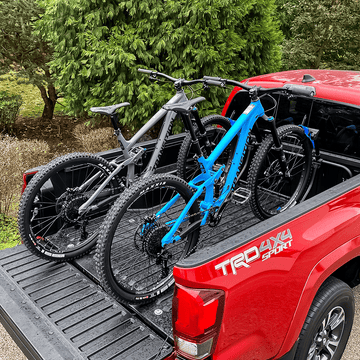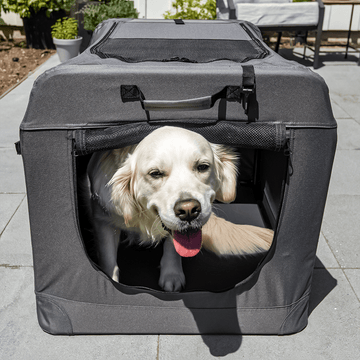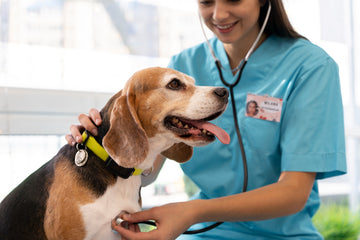As our beloved furry companions age, their nutritional requirements evolve, necessitating a reevaluation of their diet to ensure optimal health. Senior dogs, much like humans, require specific dietary considerations to mitigate age-related health issues, maintain energy levels, and support overall well-being. Implementing proper nutrition techniques can significantly enhance your senior dog's quality of life, promote longevity, and keep those happy tails wagging for many more cherished years.
This guide will explore seven essential nutrition tips to help boost your senior dog's health. Whether you're adapting your pooch's diet or introducing new supplements, every tip is crafted to cater to the unique needs of aging dogs.
Understanding a Senior Dog's Nutritional Needs
Aging can bring about changes in a dog's metabolism, immune function, and digestive system. Understanding these shifts is paramount to providing appropriate nutrition that meets their evolving needs. Senior dogs generally require fewer calories, yet they need a rich array of essential nutrients to maintain their vitality and systemic health.
Some of the common health concerns facing senior dogs include:
-
Weight Management: As activity levels decrease, managing calorie intake is crucial to prevent obesity-related complications.
-
Joint Health: Osteoarthritis is common, necessitating foods rich in omega fatty acids, glucosamine, and chondroitin.
-
Digestive Health: Fiber plays a critical role in keeping digestion efficient, reducing constipation, and promoting gut health.
-
Immune System Support: As immune systems weaken, antioxidants and essential vitamins and minerals become crucial for supporting overall health.
- Brain Health: Cognitive decline can be addressed with nutrients such as DHA, an omega-3 fatty acid that promotes brain health.
With that foundation in understanding, here we delve into the seven essential nutrition tips that you can incorporate into your senior dog's diet to significantly improve their health and quality of life.
Tip 1: Choose Senior-Specific Dog Food
Senior dogs have unique nutritional requirements, so it makes sense to switch them from adult dog food to senior-specific formulas. These products are specifically crafted to tackle common challenges faced by aging dogs. They contain a balanced formulation of proteins, fats, and other nutrients tailored to accommodate the health shifts in elderly pets, addressing issues like reduced metabolic rate and joint care.
Senior dog foods generally contain higher fiber, moderate protein, and reduced fat content, making them ideal for weight management and digestive health. Remember to look for brands that prioritize quality, sourcing ingredients responsibly to ensure the food is both nutritious and safe.
Tip 2: Monitor and Manage Caloric Intake
As your senior dog ages, their activity level may decrease, making it important to prevent unnecessary weight gain. Obesity can exacerbate existing joint problems, put additional stress on the heart, and lead to various other health issues.
Calculate the appropriate caloric intake relative to their current weight and activity level, factoring in any health concerns. Adjust food portions accordingly and avoid feeding table scraps or high-calorie treats. Instead, provide healthy snacks such as fresh vegetables or dedicated dog treats that are low in calories.
Tip 3: Prioritize Joint Health with Supplements
Supporting your senior dog's joint health is critical, given the increased risk of arthritis and mobility issues. Consider incorporating supplements rich in glucosamine and chondroitin, which are known to support cartilage resilience and prevent further joint deterioration.
Omega-3 fatty acids are another vital addition, aiding in reducing inflammation and promoting mobility. Products like Omega Route supplements can be added to your senior dog's diet to boost their joint health. Always consult with your veterinarian before beginning any new supplement regimen for personalized recommendations.
Tip 4: Enhance Digestive Health
Digestive efficiency often decreases with age, leading to constipation or irregular bowel movements. Fiber-rich foods help ensure the digestive tract remains active and healthy. Ingredients like pumpkin, sweet potatoes, or high-fiber dog foods are essential for maintaining gastrointestinal health.
Adequate hydration is equally crucial—ensure your senior dog has continuous access to fresh water and consider moist food options if they shy away from drinking water naturally. This will help prevent dehydration, another concern for aging dogs.
[shortcode id="673af4fcef61c7875123faa5" name="Pet Kits Shortcode" layout="Grid"]
Tip 5: Support Immune System with Antioxidants
An aging immune system can impact your senior dog's ability to ward off illnesses. Antioxidants play a vital role in neutralizing free radicals, which is beneficial in slowing down the aging process and supporting immune health. Vitamin E, vitamin C, and selenium are key antioxidants commonly found in fruits and vegetables such as blueberries, spinach, and carrots.
Incorporate these nutrient-rich foods into your dog's diet, either through commercial formulas or natural treats and meals you prepare at home. Products from reputable brands like Heininger provide antioxidant-rich solutions crafted to maintain and boost the immune system of senior pets.
Tip 6: Focus on Brain Health with Essential
Omega-3 Fatty Acids Cognitive function can decline in aging dogs, so supporting brain health with adequate nutrition is crucial. Docosahexaenoic acid (DHA), an omega-3 fatty acid, is particularly effective for cognitive support. Fish oils and other rich sources of omega-3 can be added to your dog's diet to promote mental sharpness.
Don’t forget to give clear instructions and regulate portions when adding supplements to your dog's diet. Essential Brain Health supplements from reliable sources can be utilized to help keep the cognitive functions of senior dogs in optimal states.
Tip 7: Consult Your Veterinarian Regularly
No nutritional regime should be instituted without first consulting a veterinarian. Regular check-ups ensure that any dietary changes are appropriate for your senior dog's health conditions. Your veterinarian can provide tailored recommendations based on your dog's individual health profile and requirements.
Bring up any changes in your dog's behavior, such as reduced appetite, mobility issues, or cognitive signs, so these can be addressed with customized care strategies. Your vet acts as a guiding partner in ensuring that your senior dog's transition into their golden years is as smooth and healthy as possible.
Concluding Thoughts Supplying senior dogs with an appropriate, nutrition-backed diet is instrumental in safeguarding their overall health and quality of life. Whether through specialized dog food, maintaining ideal weight, supplementing for joint and brain health, enhancing immunity, or consulting veterinarians, each element of your senior dog's nutritional plan plays a pivotal role.
Remember to continuously monitor your pet's health for any changes and adapt their dietary needs accordingly. With these dedicated efforts, you'll be effectively boosting your senior dog's health, allowing for more cherished moments and companionship well into their golden years.
By applying these essential tips, you'll build an actionable plan poised to foster the well-being and vitality of your aging companion. Caring for a senior dog with enhanced nutrition is a rewarding journey that enhances their comfort and happiness, reinforcing the special bond you share every single day.









